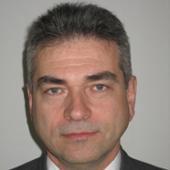Agenda
Please note: all timings are listed in CEST, to view start times in your local time zone, please click here.
-
Registration and coffee
-
Welcome and introduction
-
Keynote: EU CSS/Reach revision: State of play given the new parliament
-
Q&A
- Session 1: Updates from an EU level
-
EU chemicals policy – recent progress and current context
- Recent progress in the delivery of the Chemicals Strategy for Sustainability (CSS)
- New policy context – Chemicals Industry Package, within the context of the Mission Letters
-
Trends for regulating chemicals by implementing recently adopted legislation
- Four years of the EU's CSS, transition phase of the European Commission – what trends do we see occurring?
- What is needed to move forwards in the new policy context?
-
Refreshment break
-
ECHA Board of Appeal (BoA) and EU courts: Recent judgments on REACH and CLP cases
- Litigation trends on REACH and CLP
- Recent rulings of the BoA – an evolving case law
- Key judgments of EU Courts – a focus on CLP and its classification criteria
-
Extended Q&A on EU updates
Additional participant:
-
Lunch and networking
- Session 2: Recent important developments relating to authorization and restrictions
-
Context of the EU substitution planning project for hazardous substances
- REACH authorization and broad restrictions proved resource intensive and difficult to implement, in particular for complex cases where suitability of alternatives depends on company/use-specific considerations
- Instead of detailed regulation, the commission is considering substitution planning as a complementary/alternative tool to provide more flexibility for continued use of substances in exchange for industry engagement to invest into alternatives where feasible
-
Scope, content and goals of the EU substitution planning project for hazardous substances
- Background to study scope and objectives
- Methodology and key concepts
- Milestones and current status
-
Problem definition and policy options for the EU substitution planning project for hazardous substances
- Identification of potential options to incentivize and accelerate safer and more sustainable substitution, including integration into the REACH restriction process
- Rationale, benefits and disadvantages
-
Q&A
-
Refreshment break
-
The EU essential use concept (EUC): Definition and plans
- Overview of reasons for defining the essential use concept
- Overview of benefits of using the essential use concept
- Presentation of high-level and sub criteria with examples from the communication
- Considerations for uses deemed essential
- Thoughts on next steps
.jpg) Kastalie Bougas
Policy Officer and Economist, Safe and Sustainable Chemicals, DG Environment, European Commission
Kastalie Bougas
Policy Officer and Economist, Safe and Sustainable Chemicals, DG Environment, European Commission -
One Substance One Assessment (OSOA) and the EUC from an industry perspective
- OSOA will affect regulatory risk assessment by emphasizing the hazard element and strengthening ECHA's role: practical implications and thoughts on how to address upcoming challenges
- EUC’s practical implementation may be impacted by recent shift of EU priorities towards competitiveness
-
Q&A
-
An NGO view of the EUC as introduction to the panel
-
Panel discussion: How do the different stakeholders see EUC and the future authorisation and restriction processes working?
Additional panellist:
 Marko Sušnik
Advisor to the Secretary General on Chemicals Policy, SMEunited, and Senior Advisor Chemical Policy, Austrian Federal Economic Chamber (WKÖ), SMEunited / WKÖ
Marko Sušnik
Advisor to the Secretary General on Chemicals Policy, SMEunited, and Senior Advisor Chemical Policy, Austrian Federal Economic Chamber (WKÖ), SMEunited / WKÖ -
Networking drinks reception
Join us for relaxed networking with drinks and appetizers alongside our speakers and attendees.
-
Close of day one


.jpg)
.jpg)
-(002).jpg)





